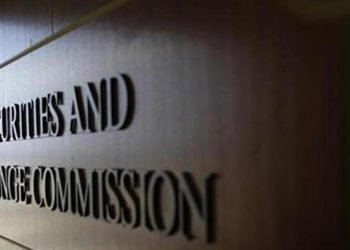The Ghanaian bond market witnessed a sharp slowdown in activity last week, with total turnover declining by 30.12% week-on-week to GH¢399.29 million, down from GH¢571.42 million in the previous week.
The slump in trading volume reflects waning investor interest despite a recent upgrade of Ghana’s sovereign credit rating by S&P Global Ratings, which was widely expected to boost market confidence.
The secondary bond market’s performance was underwhelming, signaling that investors remain cautious about the medium-term economic outlook. Although S&P upgraded Ghana’s long- and short-term foreign and local currency sovereign credit ratings from CCC+/C to B-/B, the impact on bond market sentiment has been muted so far.
According to market analysts, the upgrade was an encouraging signal of Ghana’s improving macroeconomic and fiscal conditions. However, liquidity constraints, persistent inflationary pressures, and cautious investor positioning continue to dampen trading enthusiasm.
In its latest market update, Databank Research noted that overall activity in the bond market “is expected to remain subdued in the near term,” citing investor preference for short-term securities and uncertainty over the government’s fiscal consolidation efforts.
2032 Maturity Leads Trading Activity
Despite the broad decline in market turnover, trading remained heavily concentrated in the February 2032 maturity, which continued to dominate as the most actively traded paper. This single bond accounted for GH¢145.04 million, representing over a third of total market flows for the week.
The 2031–2034 bonds collectively emerged as the market’s anchor, capturing 56% of total turnover at a weighted average yield of 15.74%. This segment’s dominance indicates investor preference for medium- to long-term maturities that offer relatively higher returns amid an uncertain short-term outlook.
Meanwhile, the 2027–2030 maturities attracted considerable interest as well, contributing 35% of total traded volumes at an average yield of 15.92%. Analysts say the consistent interest in these maturities reflects selective confidence among investors seeking stable yields within a manageable risk horizon.
Liquidity Challenges and Market Caution
Market observers attribute the reduced turnover partly to tightening liquidity conditions within the financial system. The combination of limited cash availability, cautious trading strategies, and the absence of new government issuances in the week all contributed to the decline.
Furthermore, institutional investors, including pension funds and insurance companies, have remained conservative in their trading patterns, preferring to hold existing positions until clearer signals emerge from the government’s debt management framework.
While the S&P upgrade is a positive development, it will take sustained macroeconomic stability and credible policy implementation for investor confidence to translate into higher market activity, one market analyst observed.
S&P Upgrade: A Step in the Right Direction
S&P Global Ratings’ decision to upgrade Ghana’s credit rating followed signs of improving fiscal discipline and stronger external buffers. The agency cited Ghana’s progress under the International Monetary Fund (IMF) programme, including efforts to curb inflation, stabilize the cedi, and restore fiscal balance.
The B-/B rating suggests that Ghana’s creditworthiness is gradually recovering after the debt restructuring exercises and years of fiscal strain. Nonetheless, the rating agency also warned that the sustainability of Ghana’s recovery hinges on continued reforms, debt transparency, and consistent revenue performance.
Despite the improved credit rating, many investors remain cautious about re-entering the bond market aggressively. This hesitation is partly due to lingering uncertainty about the timeline for full restoration of Ghana’s debt sustainability and the long-term trajectory of interest rates.
Market analysts also point to the cautious approach of foreign investors, who are still assessing Ghana’s external position and potential risks linked to exchange rate volatility. The return of foreign participation, which declined significantly during the debt crisis, will be crucial to deepening market liquidity and strengthening the bond market’s recovery.
Outlook: Gradual Rebound Expected
In thee coming weeks, analysts expect gradual improvements in bond market activity as fiscal indicators strengthen and investor confidence improves. The positive credit rating adjustment, combined with ongoing macroeconomic reforms, provides a solid foundation for recovery.
However, in the short term, Databank Research maintains that trading volumes will likely remain subdued, with most activity concentrated in benchmark maturities that offer attractive yields.
Investors are also expected to monitor upcoming fiscal policy announcements and macroeconomic data closely, particularly inflation and interest rate trends, to guide their portfolio decisions.
While the S&P upgrade to B-/B signals renewed international confidence in Ghana’s fiscal outlook, the 30% decline in bond market turnover underscores that investors are not yet ready to fully embrace risk.
Market watchers believe sustained stability in inflation, exchange rates, and government policy will be critical to rekindling investor enthusiasm. Until then, the bond market may continue to tread cautiously, even in the face of improving macroeconomic fundamentals.
READ ALSO:Mahama Cuts Sod for Wa–Tumu–Han-Navrongo Big Push Project, Upper West to Benefit from 260Km of Roads























